Family
Inés of Herrera
Inés of Herrera was a twelve-year-old prophetess whose message of salvation appealed to the conversos of Castile at the end of the fifteenth century. The Inquisition was anxious to quickly deal with this threat, trying many girls and women as heretics as of 1500; their confessions reveal details about this movement.
Infertile Wife in Rabbinic Judaism
Only men are legally obligated to procreate, but there is disagreement over whether that obligation compels a man to divorce his wife after ten childless years. The initial infertility of the matriarchs reinforces the efficacy of prayer by demonstrating that the individual matriarchs’ suffering and supplications are what provoked a divine response.
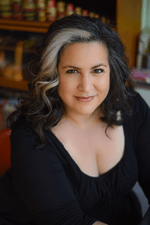
Marjorie Ingall
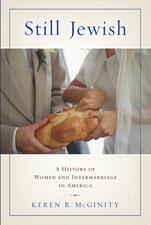
Jewish Women and Intermarriage in the United States
Marriages between Jews and people of other faiths have long fascinated scholars, clergy, and communal leaders, who often considered the choice of a Jewish spouse as an indication of the strength of ethnoreligious identity and commitment to perpetuating Judaism and the Jewish people. However, many Jewish women who intermarry in the United States continue to identify Jewishly, engage in the Jewish community, and raise Jewish children.
This entry uses gender as category of analysis and change over time to illuminate the experience and meaning of interfaith marriage for Jewish women in America. It describes how women navigated their ethnoreligious identities when they married Gentile men, the influences of feminism, the rise of ethnic consciousness, and parenthood.
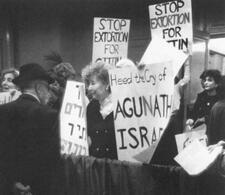
International Coalition for Agunah Rights (ICAR)
International Coalition for Agunah Rights (ICAR) was created to solve the problem of women whose husbands refuse to grant them Jewish divorces, through a combination of education and activism. Although some of the member organizations remain active in North America, ICAR itself has become a primarily Israel-focused coalition.
Iraqi Jewish Women
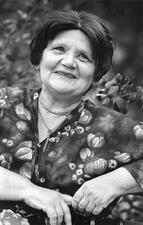
Israeli Women's Writing in Hebrew: 1948-2004
Women writers faced many obstacles in the early years of modern Hebrew, but by the end of the twentieth century they had overcome marginalization to become a central part of the country’s literature. The achievements of women’s writing in Hebrew rank among the unquestionable triumphs of Israeli feminism.
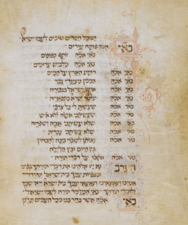
Early Modern Italy
A study of the role of Jewish women in household formation, the household, and household dissolution, as well as their engagement in Jewish culture in early modern Italy, raises the question of how much of Jewish practice reflected the context of the surrounding society and how much engaged options in traditional Jewish practices, which were selected to meet their own needs. Despite the wealth of information about some well- known women and reports of the activities of many unnamed women, Jewish women, like Christian women, still functioned in the context of women and the period does not represent a Renaissance for women.
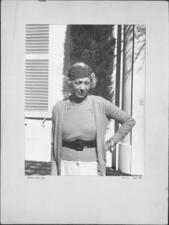
Blanche Frank Ittleson
Blanche Frank Ittleson’s pioneering work in treating and teaching intellectually disabled and emotionally disturbed children opened new possibilities for struggling children and their families.
Izieu, Women of
Nazi Klaus Barbie’s capture, deportation, and murder of forty-four Jewish children living at a home in Izieu, France, in 1944 is known primarily as a story of children, but the bravery of five women is also a significant part of the tale. Sabine Zlatin, Léa Feldblum, Suzanne Levan-Reifman, Fourtunée Benguigui, and Ita-Rosa Halaunbrenner were workers at the home or mothers of children who lived there. They played critical roles testifying against Barbie in his 1987.

Jephthah's Daughter: Midrash and Aggadah
Jephthah’s daughter is portrayed in midrash as a wise and practical woman, well-versed in halakhah and the Torah. The rabbis place the blame for her murder on her father and the High Priest Phinehas.
The Jewish Family in Early Twentieth-Century United States
Jewish Migrations to the United States in the Late Twentieth Century
Jewish Mothers of the Plaza de Mayo
The Jewish women who formed part of the Mothers of the Plaza de Mayo were pivotal to the human rights movement in Argentina, fighting for truth and justice for victims of the 1976-1983 dictatorship that resulted in 30,000 disappeared, tortured, and killed.

Jochebed: Bible
Jochebed, wife of Amram and mother of Moses, Aaron, and Miriam, is mentioned by name only in Exod 6:20 and Num 26:59, both genealogical listings. Jochebed, whose name (Hebrew yokheved) apparently means “YHWH is glory,” is notable as the first person in the Bible to have a name with the divine element yah, a shortened form of YHWH.

Jochebed: Midrash and Aggadah
The midrash portrays Jochebed as a wise woman who was righteous and God-fearing. By merit of her good deeds, she gave birth to the three leaders of the Exodus generation: Moses, Aaron, and Miriam.
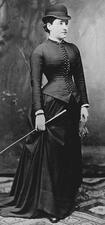
Juedischer Frauenbund (The League of Jewish Women)
Founded in 1904, The League of Jewish Women pursued secular German feminist goals while maintaining a strong sense of Jewish identity. The League supported vulnerable women through practical social reforms while fighting for political power within the German Jewish community. It saw employment opportunities as essential to women’s economic, psychological, and emotional independence.
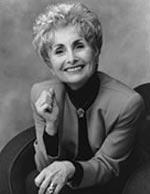
Esther Jungreis
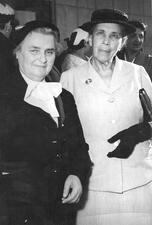
Rachel Kagan (Cohen)

Helena Kagan
Helena Kagan, a pioneer of pediatric medicine in pre-State Palestine, is known to this day as the children’s doctor of Jerusalem, the city where she settled following her aliyah in 1914. Kagan tended to generations of children—Jews, Muslims, and Christians—saving many of them from sickness and death.
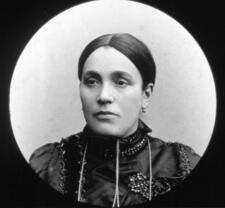
Taube Kaplan
Taube Kaplan (the Greene Rebitzin) was the principal fundraiser and founder of the Hebrew Maternity Ward, founded in 1916 in the Plateau-Mont Royal neighborhood of Montréal, Quebec. Her efforts contributed to a reduction in maternal and infant mortality in Montreal’s Jewish community. Kaplan also raised funds for the establishment of the Jewish General Hospital, which opened its doors in 1934.
Karaite Women
Family law and personal status of women are important aspects of both the daily life and the halakhah of Karaite communities. Karaite legal sources often deal with rules pertaining to betrothal, marriage, divorce, ritual purity, and incest.
Régine Karlin-Orfinger
Régine Karlin’s resistance activities would alone have warranted esteem and recognition, but she did not desist from further work. Totally bilingual in French and Dutch and even polyglot, since she was also proficient in both English and Russian, she had a brilliant career as a lawyer, characterized by her militant and unwavering support of causes that she considered just.
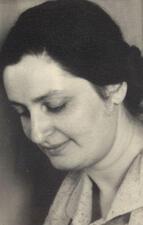
Hannah Karminski
During the mid-1920s and the 1930s in Germany, Hannah Karminski served as secretary of the League of Jewish Women and, from 1924 to 1938, as editor of its newsletter. After the forced liquidation of the League in 1938, Karminski remained in Germany and continued her work in the Reich Association of Jews in Germany, assisting with the kindertransports and welfare. She was deported to Auschwitz and murdered in 1942.



